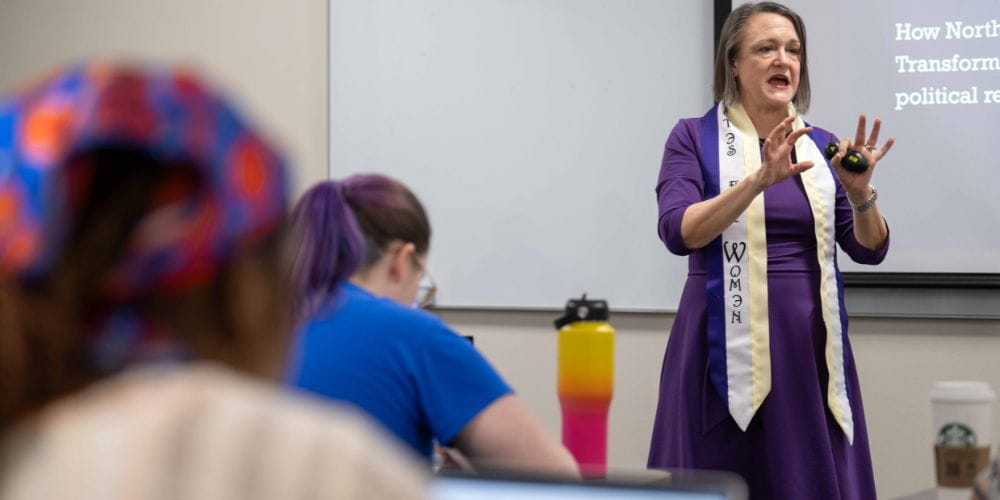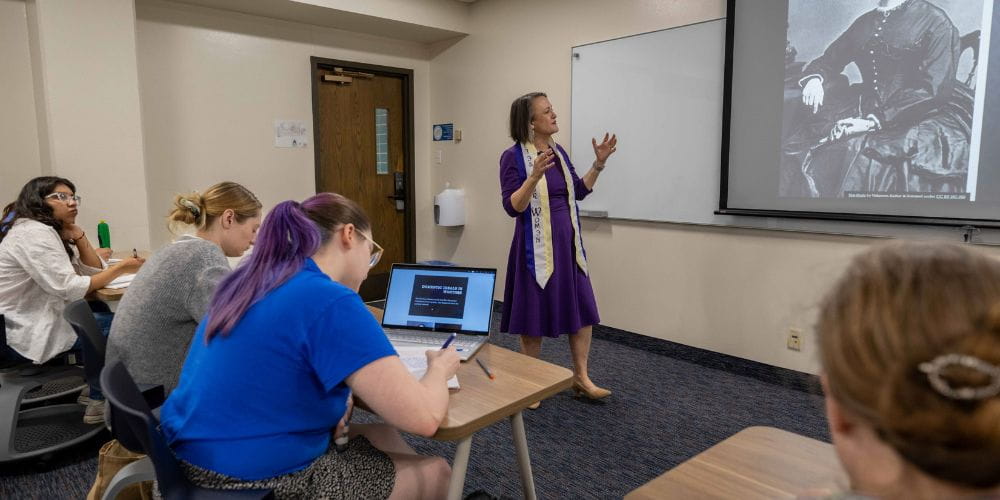Exploring power dynamics in women’s history
In the long history of women’s activism, you’ll find a thread uniting the change-makers: women who aren’t afraid to stand up, speak out, and question existing power structures.
It’s something that fascinates Stephanie Cole, associate professor of history and department chair, whose research and teaching often center on understanding not only the lives of women activists, particularly in the South, but also the contexts in which they lived, fought and made an impact.
“What motivates me is really figuring out who has power and why,” she said. “We can’t really answer those questions unless we look at the experiences of all sorts of people, including those who don’t have power. Often, that’s going to be women.”
Numerous factors come into play when we think about women and power, Cole said. One example: In the decades leading up to the Civil War, divorce laws began changing in women’s favor in the North but remained stagnant in the South, a region that was upholding traditional power structures.
“Race and gender are completely tied up in each other,” she said. “Southerners held on to the notion that divorce would be a bad idea and that women should play an ornamental role. If you can uphold that gender hierarchy, it’s easier to hold on to the racial hierarchy. The two are invested in one another.”
Cole pointed out, however, that Texas historically was much more inclusive of women’s rights than other areas of the South because of its colonial Spanish roots. It’s one of many aspects of Texas women’s history explored in a book she co-edited, “Texas Women: Their Histories, Their Lives,” which won the Texas State Historical Association’s Liz Carpenter Prize.
“Texas embedded Spanish code involving women, which is quite different from English common law,” Cole said. “For example, Spanish code acknowledged women’s ability to hold property. Texas became kind of an amalgamation of Spanish and English laws.”
Cole also examines women and work, particularly the ways that society values or undervalues women’s labor. She pointed to the example of Margaret Reid, an economist in the 1930s who pioneered research into the importance of nonmarket activities, such as household labor, to the economy.
“I think the pandemic illustrated the cost in underestimating what has traditionally been women’s labor,” Cole said. “When women left the workforce to take care of their children, our economy paid the price in part because we don’t count unpaid work in any official capacity. There’s still so much to still be understood about women’s economic contributions in the 20th and 21st centuries.”
Examining how women’s contributions to society have historically been undervalued is also important, Cole said, because it helps us understand our existing power structures and how we might improve things.
“I can get worried about women’s rights and equality in contemporary society, but in my own experience in the classroom with my students, I see they’re interested, they’re involved, and they’re engaged. They get it,” she said. “UTA students really lift me up.”
- Written by Amber Scott – Office of Marketing, Messaging, and Engagement

